
Warren Zevon is the second studio album by American musician Warren Zevon. This album was recorded in 1975 and released on May 18, 1976, by Asylum Records. A remastered version of the album with bonus tracks was released in 2008 by Rhino Records.
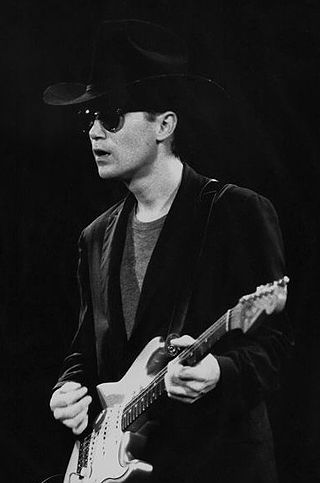
Marshall Howard Crenshaw is an American musician, singer, songwriter, and guitarist best known for hit songs such as "Someday, Someway," a US top 40 hit in 1982, "Cynical Girl," and "Whenever You're on My Mind." He is also the co-author of one of the biggest radio hits of the 1990s, the Gin Blossoms's "Til I Hear It from You." His music has roots in classic soul music and Buddy Holly, to whom Crenshaw was often compared in the early days of his career, and whom he portrayed in the 1987 film La Bamba.

Whatever is the first solo album by the American singer-songwriter Aimee Mann, released in 1993.

The Wind is the twelfth and final studio album by American singer-songwriter Warren Zevon. The album was released on August 26, 2003, by Artemis Records. Zevon began recording the album shortly after he was diagnosed with inoperable pleural mesothelioma, and it was released just two weeks before his death on September 7, 2003. The album was awarded the Grammy Award for Best Contemporary Folk Album, and "Disorder in the House", performed by Zevon with Bruce Springsteen, won the Grammy for Best Rock Vocal Performance. Songs from the album were nominated for an additional three Grammys.
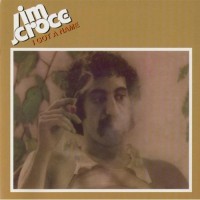
I Got a Name is the fifth and final studio album and first posthumous release by American singer-songwriter, Jim Croce, released on December 1, 1973. It features the ballad "I'll Have to Say I Love You in a Song", which reached number 9 in the US singles chart, and the ballad "Salon and Saloon", the last song Croce recorded in his lifetime. The song, which is noted for its sparse piano-only vocal backing, was written by his guitarist and friend Maury Muehleisen and was included on the album as a gift to the writer.
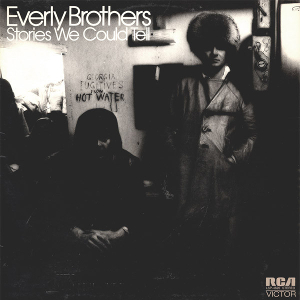
Stories We Could Tell is a country rock album by The Everly Brothers, released in 1972. It was reissued as Stories We Could Tell:The RCA Years by BMG in 2003 and included additional tracks, all stemming from the successor album Pass the Chicken & Listen. In 2014 it was re-released once more on Stories We Could Tell + Pass The Chicken & Listen by Morello Records.
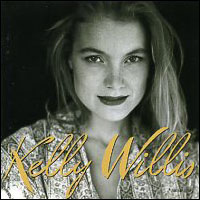
Kelly Willis is the third album from the Austin, Texas-based singer. There were a couple of minor Billboard hits in the #63 "Heaven's Just a Sin Away" and the #72 "Whatever Way the Wind Blows." Also of note is a duet with Kevin Welch, "That'll Be Me."

Wind of Change is the debut studio album by English guitarist and singer Peter Frampton, released in 1972 by A&M. The album features appearances by Ringo Starr, Billy Preston and Klaus Voormann.

Can You Fly is the second album by singer-songwriter Freedy Johnston. It was released in 1992 on Bar/None Records. Can You Fly appeared on Fast Folk's year-end list of the ten best albums of 1992, and The Village Voice's Robert Christgau later dubbed it "a perfect album".
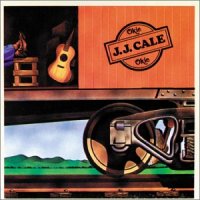
Okie is the third studio album by J. J. Cale, released in 1974.

Field Day is the second album by American rock musician Marshall Crenshaw. Recorded quickly after the moderate success of his self-titled debut album, Field Day featured a change in style and production after Crenshaw switched producers from Richard Gottehrer to Steve Lillywhite. The recording of the album was remembered positively by Crenshaw as was the album's sound.

Loose is a 1972 album by the rock band Crazy Horse, the follow-up to their self-titled debut. It marked the departure of founding guitarist Danny Whitten, as well as Jack Nitzsche and Nils Lofgren. In their place for this album were George Whitsell and Greg Leroy on guitars, and John Blanton on organ.
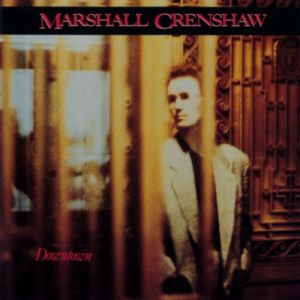
Downtown is the third album by singer/songwriter Marshall Crenshaw. Recorded after the relative failure of his album Field Day, Downtown was a departure from his previous albums due to its more rootsy sound.

Mary Jean & 9 Others is the fourth album by singer-songwriter Marshall Crenshaw. The album was produced by Don Dixon and features a return to the sounds of Crenshaw's earlier work after the country rock excursion of his previous album, Downtown.

Life's Too Short is the sixth album by singer/songwriter Marshall Crenshaw.

Live …My Truck Is My Home is a live album by singer/songwriter Marshall Crenshaw, which includes performances from 1982 to 1994.

Miracle of Science is the seventh studio album by singer/songwriter Marshall Crenshaw, and his first studio effort for the indie imprint Razor & Tie. Having left the major labels to increase his creative control, Crenshaw produced the album and played most of the instruments.
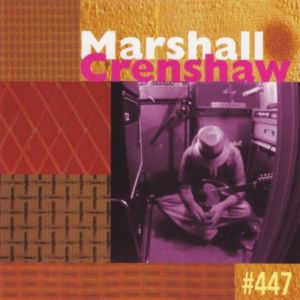
#447 is the eighth studio album by rock artist Marshall Crenshaw. It was released in 1999 on Razor & Tie. It was re-released in 2021 on Shinytone, in both vinyl and CD formats. There are two bonus tracks on the re-released CD.

What's In The Bag? is the ninth studio album by singer/songwriter Marshall Crenshaw.

Jaggedland is the tenth studio album by the rock artist Marshall Crenshaw. It was released in 2009 on 429 Records.




















